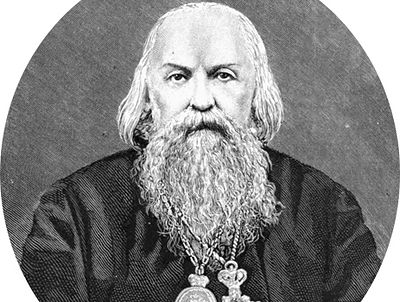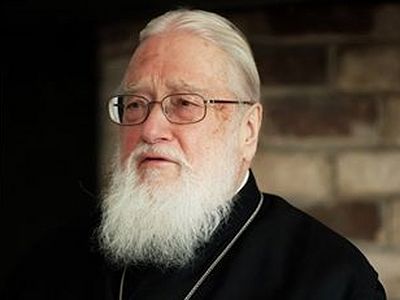 Photo: Fr. Ted's Blog
Photo: Fr. Ted's Blog
The above two words are Greek. The first means the strict or exact teaching of the Church, the second means its practice, what is done as pastoral dispensation. For example, akrivia states that no-one should be ordained deacon until the age of 25, priest until 30 and bishop until 35. However, in reality the canons giving these ages are broken by the vast majority of the world’s 750 or so Orthodox bishops, sometimes exceptionally, sometimes regularly. Why? Because the bishop in question considers that in certain cases, it is for the benefit of the majority not to practice or take literally that particular canon. Indeed, if we were to take every canon literally, the Church would long ago have ceased to exist on earth because all clergy, bishops included, would have been defrocked and all laypeople excommunicated because the canons are strict. Not taking or practising literally a canon is called “ikonomia,”1 the opposite is “akrivia”.
This may seem like a defence of “ikonomia”. It is not. Sadly, especially in Western countries, “ikonomia” seems to be the norm. It should not be. When Orthodox of all nationalities in Western countries hear about akrivia, they can be shocked. In other words, they have never heard, for example, that we should always read morning and evening prayers; that we should always read the full rule before taking communion (three canons and prayers); they have never heard that we should not take communion without first attending the vigil service; they have never heard that confession before communion is the norm; that confession and communion should be taken several times a year; that he who does not take communion at least once every three weeks is excommunicated (according to the canons); that the place where we live should be blessed; that there is a pious custom for widows and widowers to take up monastic life (and not remarry); that the Orthodox ideal is not to use contraception; that the fasts are not just fasting from meat, but from meat, fish, eggs and all dairy produce; that we do not sit down at church but stand through all services, except during the kathismas etc etc.
Yes, all the above is true. However, none of it is absolute. One of the problems in contemporary Church life is that on the fringes of the Church there are those who wish to absolutize “akrivia” and those who wish to absolutize “ikonomia”. Both are in error. Does this mean that there is no absolute truth in Church life, that “all is relative”?
Of course not. All the absolute truths of the Church are enshrined as dogmas, they are in the Creed: the Holy Trinity, the Creator God, the two natures of Christ, the Incarnation, the Virgin Birth, the Crucifixion and Resurrection of Christ become man, the Second Coming, the Last Judgement, the Procession of the Holy Spirit, the One, Holy, Catholic and Apostolic Church, One Baptism, the Life of the World to Come. If you do not believe in these things, you are not a member of the Church, you are not Orthodox, you are not a Christian, but something less. The Creed of the Church is not a consumerist supermarket, where you can pick and choose. However, whatever is not in the Creed, is subject to pastoral dispensation, to “ikonomia”.
“Too much of anything is bad for you”. So goes the saying of popular wisdom. In other words, too much akrivia will lead people to the depression and despair of the sect and phariseeism. On the other hand, too much ikonomia will lead people to laxist leniency, to relativism and to anything goes. Too much akrivia and too much ikonomia both lead people out of the Church. It is for us to flee the extremes, not to seek the opinions of individuals, like Protestants,2 but to find the consensus of the Church. Only thus can we avoid the fringes and margins and keep in the mainstream. This means a balance between strictness, which is good where it is necessary for the salvation of the soul, and pastoral dispensation, which is good where it is necessary for the salvation of the soul. It is never a question of akrivia or ikonomia, but always akrivia and ikonomia.





